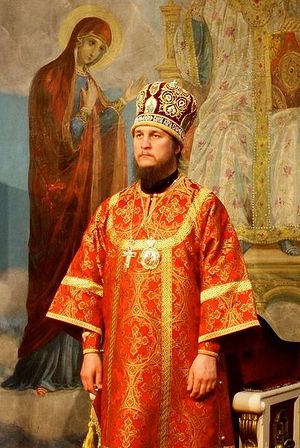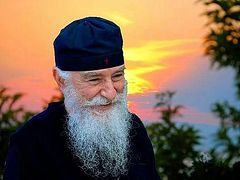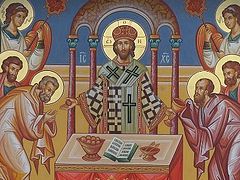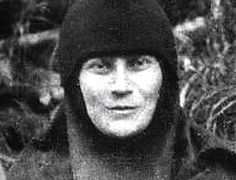On September 11, 2013, the Council of Bishops of the Russian Orthodox Church discussed a project to compile a document entitled, “On preparation for Holy Communion”. The Orthodox Church as whole provides no definitive guidelines on individual preparation to receive the Body and Blood of Christ at the Holy Eucharist. Different Local Churches have their own traditions, but Orthodox teaching leaves no doubt that communicants must take care to prepare themselves for this great Mystery, that they might not approach the divine trapeza unworthily.
By way of introduction, let’s take a passage from the Epistle of the Apostle Paul to the Corinthians (1 Cor. 11:24–30):
And when he had given thanks, he brake it, and said, take, eat: this is my body, which is broken for you: this do in remembrance of me. After the same manner also he took the cup, when he had supped, saying, this cup is the new testament in my blood: this do ye, as oft as ye drink it, in remembrance of me. For as often as ye eat this bread, and drink this cup, ye do shew the Lord's death till he come. Wherefore whosoever shall eat this bread, and drink this cup of the Lord, unworthily, shall be guilty of the body and blood of the Lord. But let a man examine himself, and so let him eat of that bread, and drink of that cup. For he that eateth and drinketh unworthily, eateth and drinketh damnation to himself, not discerning the Lord's body. For this cause many are weak and sickly among you, and many sleep.
If we keep this passage in mind when we prepare ourselves for Communion, we know at least that preparation is necessary. But how do we best prepare ourselves? After all, if the Lord should mark all our iniquities, who would stand?(cf Ps. 103:3). Are we ever really prepared to receive the Body and Blood of Christ? Let’s begin with the practice in the Russian Orthodox Church of always going to confession before Communion. Bishop Pachomy (Bruskov) of Pokrov and Nicholaevsk has offered his insights to Pravoslavie.ru correspondent Anastasia Rahlina.
Confession and Communion: inseparable?
When asked his thoughts on the current discussion in Russian social media about the inseparability of confession and Communion, Bishop Pachomy answered:
If you look at Communion and confession from the point of view of Liturgical practice, from the point of view of the Church and Orthodox tradition, then clearly these two Sacraments are wholly independent of each other. However, due to the practice that has taken shape with us, many are under the impression that these Sacraments are inseparably bound—if you have confessed then you must receive Communion; and the reverse, it is categorically forbidden to receive Communion without confession. Therefore, it is no wonder that people are discussing it.
But on the other hand, this practice did not form accidentally in our Church over the past century. As I see it, it is primarily the result of a general decline, the growing cold of spiritual zeal and fervor.
He explained more about this practice in Russia. In soviet times as well as today, a huge number of people come to church services unfamiliar with Church life, and even for the first time. They are uninstructed, and often know nothing about the Sacraments of confession or Communion. “So, in order to give them an opportunity to make sense of it, we can by uniting the two Sacraments at least not give place to the more outlandish situations.” When people come to church and see that everyone else is receiving Communion, they might also step forward to do the same.
They have no idea why or where they came. They come at times with thoughts and feelings that are impermissible for partaking of this Sacrament, for receiving the Body and Blood of Christ. The experienced pastor can even tell this by their outward appearance. And those pastors have to ask if they had gone to confession, if they are receiving Communion for the first time, and what moved them to do so.
Thus, these Sacraments were united not by accident, and today it would be wrong to separate them by decree. This would lead to fairly serious consequences, where people could completely forget what confession is.
On the other hand, there are people who go to church often, receive Communion and go to confession regularly. Priests will even bless them at times to receive without confession (on Pascha, for example, when people might attend services throughout Bright Week and receive Communion). So, that practice also exists.
Bishop Pachomy describes the document on preparation for Holy Communion as good and timely, written in a gentle tone, with broad historical observations, and not categorical. “It neither fixes nor forbids any one of the traditions, but it gives each person the opportunity to think about the fact that Church life is multifaceted and diverse, and everyone has his or her own spiritual measure.”
As the Lord said in the Gosples, He that is able to receive it, let him receive it (Mt. 19:12): one person may be capable of living an intense inner life, regularly go to church, and continually search his own conscience—as St. Ignatius (Brianchaninov) says, so that their minds would always swim in the Gospels, in the teachings of Christ. Another person might be so inwardly disposed that it is an ascetic labor for him to receive Communion only twice a year.
Of course, these two types of people should have different forms of preparation. For the first, if he receives once a week or two-three times a week (and there are such cases), it is probably not so necessary to confess often. For those who receive rarely, confession is mandatory and necessary. Otherwise their hearts will become hardened.
In any case, Bishop Pachomy says, all should follow the advice of their spiritual father if they have one; if they do not, they should seek the advice of the priests receiving their confessions. He said that the problem is—and why arguments arise about this in the first place—the lack of serious spiritual authorities to whom people can turn for advice. We live in unspiritual times.
Fasting before Communion
Another disagreement often arises concerning fasting before Communion. According to Orthodox tradition, communicants should have prepared themselves by fasting—abstaining from animal products for one to three days before receiving. But priests are not required to fast before celebrating the Liturgy, although there are some other strictures placed upon them. Some say that this is not fair—why should laypeople be required to fast when priests are not?
Let’s begin with the fact that priests were once laymen, too. And if a priest serves the Liturgy alone in a parish, in some cases daily, should he fast every day? He also needs to eat.
Yes, there is a tradition—it is not written anywhere, but it is a tradition—that a priest does not keep a full fast as the laity does before preparing for the Liturgy. But there are pious, monastically inclined priests (even among married priests) who do fast before serving the Liturgy.
It seems to me that in discussions on such matters it is best not to jump to conclusions. You can’t make general statements, such as, “Priests don’t fast.” That is not exactly the case. I know many priests who try to live an attentive life. And on the whole, there is a certain difference between the clergy and the laity, including in their preparation for services.
And could it really be so difficult to fast for three days before receiving Communion if one does not receive very regularly? This is mentioned in the document: there is a tradition of fasting three days, and another of fasting one day, as the spiritual father sees fit. It all depends on the person’s situation, his spiritual constitution, his development, circumstances, and so on.
Bishop Pachomy says that he loves monasticism and refers to it often. In places where the monastic tradition has remained at least relatively unbroken, there is more emphasis on fasting. However, there are places where monasticism was lost for a long period of time, such as in Siberia, or where it was never established at all. “Therefore, there is no point in making unequivocal decisions… Things cannot be decided by a piece of paper. After all, God asks for our heart. He says, Son, give Me thy heart. Matters of the heart are a delicate matter.”
The document describes the traditions as they stand today, and these traditions are not contradictory. We have to listen to the advice of our priest, and to the Church’s opinion. But Bishop Pachomy also feels that more could be said about the fast-free weeks. Besides Bright Week there are also the week of the Publican and the Pharisee, the period between Christmas and the Theophany, and the week after Pentecost. Can we receive Communion although we are not fasting? Should we fast during fast-free periods, in preparation for receiving Communion? It can be difficult for us to discern the right spirit of those particular times of the Church year, and there are no set rules (and perhaps shouldn’t be), but a little guidance might be helpful.
The statements in the document about fasting before Communion are more like recommendations than mandates. It does not fix one or another practice, but presents them for consideration. It recommends the middle path.
The prayer rule before Communion
Another Church tradition is the reading of certain prayers from the Orthodox Prayer Book known as the Prayers before Holy Communion. They include Psalms 22, 23, and 115, and a special canon using the refrain: “Create in me a clean heart, O God, and renew a right spirit in me. Cast me not away from Thy Face, and take not Thy Holy Spirit from me” (also from the Psalms). Then there are the series of penitential prayers, which many parishes and monasteries read in church, before the chalice is brought out of the altar for Communion of the faithful. But many also customarily read what is known as the “Three Canons”: to the Savior, to the Mother of God, and to the Guardian Angel. When Bishop Pachomy was asked if all of these elements should be clearly outlined in the treatise, he answered that he thinks it unnecessary.
It is another matter that one should always do a little more, rather than less. This applies as much to work as it does to prayer. Could there be anything bad about a person preparing for Holy Communion by reading, for example, the Three Canons and an Akathist, fasting for three days, reading the holy fathers, and attending the services? After all, this allows him to become stronger within, to develop spiritually.
But I think that others may be put off by this. An experienced pastor will always see—all different things may come up—that a person is in no condition to fulfill one or another obedience, and in those cases the rule can be shortened. Of course, it all depends on the priest. We need to raise good, kind-hearted pastors… No mandates can make that happen. This takes years.
People are so busy
Moscow, where Bishop Pachomius had this discussion, is one of the busiest, most grinding metropolises in the world. Many hours are spent on transportation to and from work, and some people listen to recordings of the prayer rule before Communion in their cars while sitting in traffic jams. They have no time to go to the evening service the day before, and it is very easy to slip into a “rush” mode of running to church for a half an hour, just long enough to receive Communion, and then running off again to begin a busy day. One does have to give them credit for attending the Liturgy at all on weekdays, but perhaps there is a problem with this approach.
Bishop Pachomy agrees that this really is a fact of city life. He feels that in addressing this problem, the Church, again, has to create a constructive atmosphere. We can also look at the experience of other Churches besides the Moscow Patriarchate, such as the Greek Orthodox Church, or even the Catholic Church, and what the results have been.
It is no secret that in the 1960s, the Roman Catholic Church, understanding that parishioners need to be drawn to church, went, you might say, out to the people, and they went so deeply into the people that they lost themselves.
If we talk about Divine Services, according to the rule, Matins should be served in the morning, and that is how the Greeks do it. Is it justified? Yes, from the Liturgical point of view, that is how it should be. But what has happened in practice? Understandably, a person burdened by his job and family cannot go at five or six in the morning to services that will last four hours, and then head off for work. So what is the outcome? Matins are served in the morning, only there is very little left of them. Matins are shortened; no one goes to them anyway, and that service remains unknown to the majority of parishioners.
In our Church, the Matins are served in the evening. From the point of view of the rule, this is some sort of nonsense… But this situation is the outcome of the Church’s experience, which was formed over a long period of time. Probably this is that very important and needed compromise that was found. And we must pay attention to that experience.
Besides, how many people are there today who, without having entered into the Church’s tradition, without having delved into church life or worked at it, say, this is bad, this is hard, let’s change it, shorten it, and it will be better. But forgive me: I for one know a huge number of people who, to the contrary, want the reverse.
I was once the preceptor in my monastery. We usually think that it is hard for people to stand in church and listen to kathismas (chapters from the Psalter)… Well, the brothers had a disagreement: Should a monastery in the city read two kathismas? Perhaps we should shorten it so that the break between readings comes after only one Psalm, as they do in many parishes? Somehow word of this mood reached our parishioners. And how many of them expressed their categorical dissent! They said, how could you? Those kathismas are a great consolation to us. We stand there and pray, say the Jesus prayer, read the Psalter… please, do not shorten them! For many, the services are a great gift, only they do not shout about it on every street corner.
The bishop gave other examples of parishioners complaining—not about long services, but about shortened ones. He said that the clergy often assume that people do not want to spend a long time at services; however, experience has shown that this is a wrong assumption. “Maybe there are fewer people like that than there are of the slack, but nevertheless, we must not forget about them.”
We should raise the standard higher. We may not be able to reach it, but we must try nonetheless, and do at least something. I always recall in such cases the remarkable story by Metropolitan Benjamin (Fedchenkov) in his book, Godly People. When he was retreating with the White Army in the Crimea, he arrived at a monastery somewhere near Cherson. The services were going on; he was praying on the cliros with the brothers, and the Psalter reading began. All the brothers sat down, while the elderly abbot remained standing. Vladyka Benjamin asked him, “Father, you are an aged man and experienced elder. Tell me, why did all the brothers sit, but you stand?” The abbot answered, “Vladyka! If I sit down, they will lie down.”
We must not be lukewarm with regard to the services. A pastor should be an example—including in his intense life of prayer—and be strict with himself. A lazy person will always find a loophole. But the person who might have endured and labored will most likely never do so if he never saw an example to follow.





Why should a Christian give a **** about what Mark Twain said?